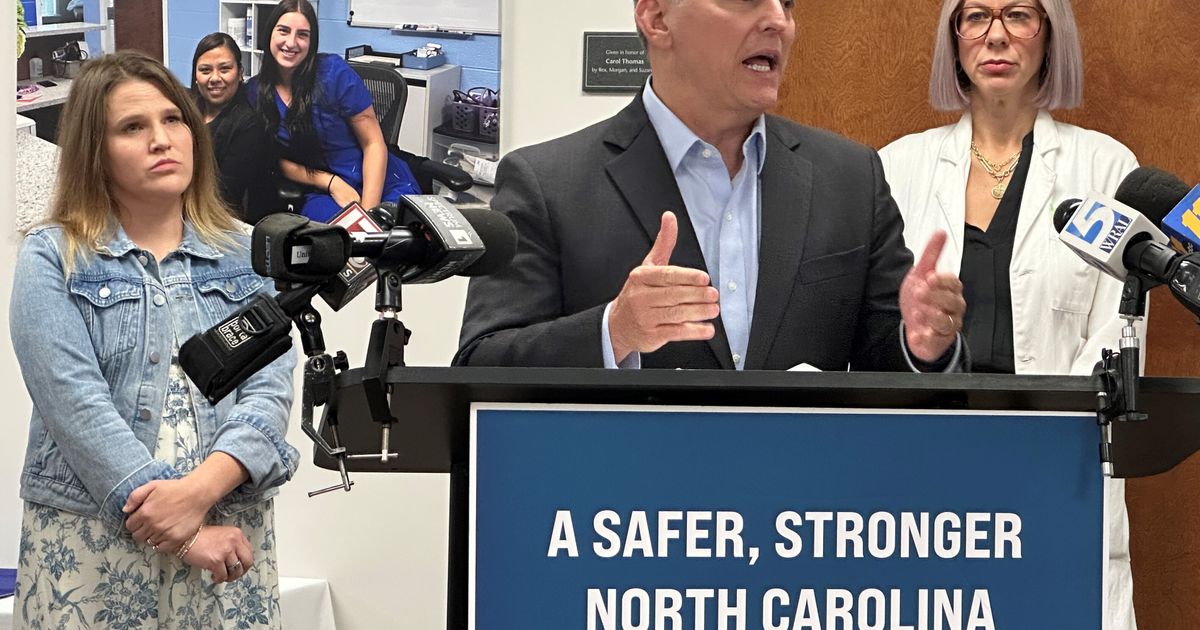More funding for mental health is still needed to help improve public safety, Gov. Josh Stein said Thursday in Greenville, as he highlighted efforts by local law enforcement and health care workers there.
Last week, Stein signed into law a series of new criminal law changes inspired by the stabbing death of a woman in Charlotte, Iryna Zarutska, in an apparently random attack that police say was carried out by a homeless man who’s now undergoing mental competency tests.
Stein has said that Republican lawmakers, who wrote the new crime bill, focused too much on how courts and mental hospitals deal with people only after they’re arrested. He has called for more work to prevent crime instead of reacting to it, and has said that mental health funding should be a key part of that conversation.
State lawmakers are still attempting to negotiate a new state budget, and Stein has urged them to use those negotiations to do more for mental health.
“We must have a well-functioning mental health care system that gets people the treatment and support they need to stay healthy and keep us all safe,” Stein said Thursday in a news release. “By building on these successful programs that are already making a difference in people’s lives, we can prevent people from falling through the cracks.”
He highlighted work being done by Integrated Family Services, a Greenville group that’s opening an urgent care specifically for behavioral health issues later this month. Natasha Holley, the group’s chief executive, said Stein is right that treating individuals’ mental health issues can improve a community’s public safety.
“When someone is in crisis, they shouldn’t have to wait, and they should know exactly where to go,” she said in a written statement. “Mental health and community safety aren’t separate issues; they’re deeply connected. When we strengthen one, we strengthen the other.”
Stein said mental health for people involved in the criminal justice system could involve efforts to divert people from prison into treatment facilities, or to get them better care while behind bars, as well as to help them after they’re released so they don’t re-offend. Pitt County Sheriff Paula Dance said she supports efforts to address mental health issues of people her deputies interact with.
“Law enforcement officers work hard to deescalate crisis situations and keep people safe, and partnering with mental health professionals makes us even better at our work,” Dance said in a news release.

